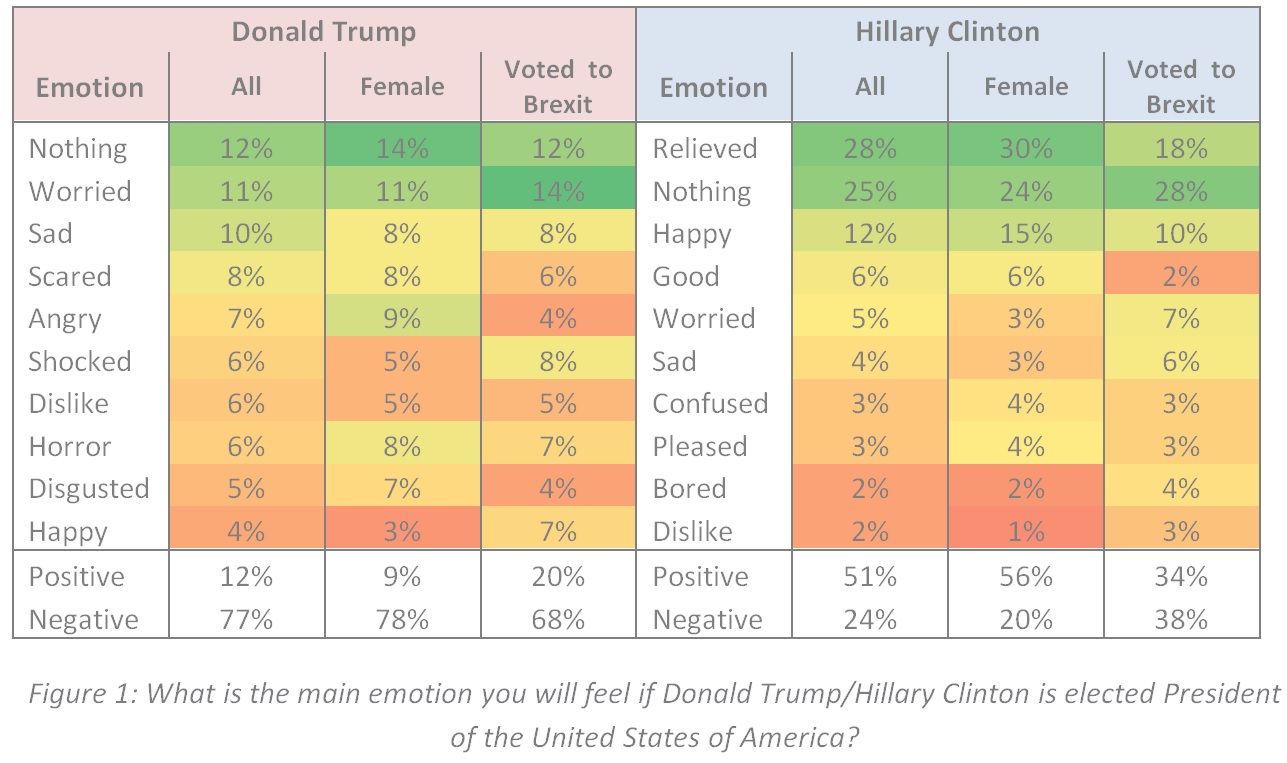Emotalizer: US Presidential Election
Posted: 04/11/2016

“The United Kingdom would reject Donald Trump”

As we finally come to the end of a gruelling US Presidential election cycle we can soon move on from the same exhausted debates about Trump’s taxes, Clinton’s likability and whether Michelle can just do the job instead. But before the votes come in, we wanted to analyse the British perspective on this election.
Political polling is known to be an unreliable science, evidenced most recently by the EU Referendum and 2015 General Election. To provide a different perspective to traditional methods our Emotalizer asks respondents about their emotional reaction to a topic rather than asking their intentions directly. From these reactions we can then measure the public sentiment on each topic. To read more about this approach see here.
When asked the main emotion that would be evoked by a Clinton victory 51% of respondents cited positive emotions. As shown in the above table, this compares to only 12% positive emotions evoked by the prospect of President Trump. The remaining 37% of the sample are either undecided or indifferent to both candidates. This leaves Clinton with an 81% versus 19% advantage within the decided British voters.
These levels of support for Clinton and Trump put the British public in line with the most pro-Clinton US Electoral College of Washington DC, which according to FiveThirtyEight’s weighted average of recent polls shows Clinton to have 79% of decided votes. This proportion is far above the proportion Clinton is seeing in any states, with the next highest being Maryland at 58%.
The perception of Trump as anti-establishment and the demographic make-up of his supporters have led to comparisons with Brexit’s Leave campaign. When we look at the emotions evoked amongst those who voted Leave we see positivity towards Trump shift from 12% to 20% and Clinton support shrink from 51% to 34%. Brexiters are mostly characterised by being more indifferent or undecided about the US Election, with 46% indicating no preference between candidates. But this still leaves Clinton with 63% of the popular vote, ahead of Maryland as noted above.
As well as providing an additional measure of positivity to a poll, the Emotalizer method shows additional insight through the flavours of the stated emotions. These emotions show how Britain is actively against Trump with him evoking feelings of Disgust, Anger and even Horror which hasn’t been cited for any previous topic we’ve researched. Though our research indicates a landslide victory for Clinton in Britain, by far the most commonly cited emotion was Relief, perhaps highlighting the concern around Trump more than her own positive attributes.